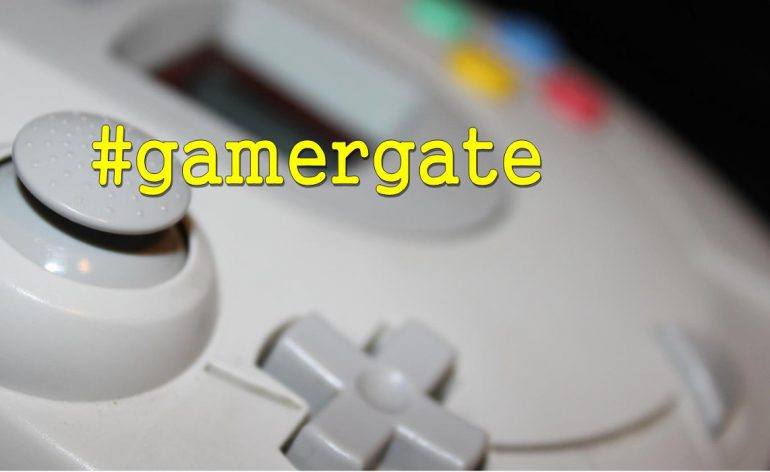GamerGate: Why is this still a thing?
I’m a gamer and a writer, who since August has been trying to ignore the hashtag movement known as GamerGate to no avail. I have viewed it at best as a distraction from real gaming discussion and at worst aggressively divisive and downright harmful. However, as the movement escalates it seems as though discussion here is unavoidable. The problem I find is that all sides occupy a mind-boggling range of stances about what they and their opponents want and stand for. Since I believe that Dorkadia readers are intelligent and sensible people, I think we can discuss this openly, without malice toward either side of this complex issue. Let’s just leave the extremists out of the loop, okay? I really don’t need an inbox flooded with death threats.
The story of GamerGate has been covered on both sides in more places than I care to count. Articles in The Washington Post, Time, Forbes, The Verge, Polygon and numerous other gaming sites have appeared in recent months, decrying GamerGate. For those backing the hashtag, there’s a curated site filled with videos, infographics, and articles that support it here. Of course, you could always just Google “What is GamerGate?” or follow this link where I do it for you. If you’re somehow new to the whole thing, then thanks for coming here first and please check out some of the preceding links.
Regardless of the tag’s origins, I think it would be more useful to start by addressing what many moderate and level-headed followers of the movement want to reform: integrity and ethics in gaming journalism. Yes, I do have to specify moderates. If you ask me, this shouldn’t even be a debate. If there’s some kind of corruption that’s found, it should be dealt with swiftly and publicly.
Game publishers have practiced blacklisting of publications that give low scores for a rather long time. In order to avoid being blacklisted, review scores are hyperinflated into meaninglessness, even if the review text contradicts the game’s high score. Virtually nothing talked about on a major site gets less than a 7/10 even when the body of the review is downright scathing. What confuses me even more is that while clamoring for ethics, there are those in the GamerGate movement that openly called for the blacklisting of Polygon by Nintendo over their low-ish (7.5/10) review of Bayonetta 2, a lower score than was given by many other major outlets. The GamerGate movement didn’t seem as concerned with the low score as the reasoning behind it: criticism over the sexualization of the main character. Is that somehow corrupt or unethical to say? If no score was attached to it and people just had to read the review and decide whether the sexualization aspect mattered to them, would there still be this much uproar? (Well, yes, probably so if we’re being honest.) We all know this is a problem and it’s one reason I really dislike using scores when I review a game. Scores somehow imply that there’s an objective system by which to rate all games – that simply isn’t the case.
That brings me to a point about this whole discussion that has been mentioned in PC Authority and Forbes, but bears repeating here: the difference between reporting and critiquing. News reporting should strive to state the facts without undue spin or personal bias. A review, however, is a subjective account of the author’s impressions. Asking for unbiased and objective reviews is counterproductive – you end up with a glorified instruction manual. Seriously, just go read this review of Titanfall on Objective Game Reviews. Is that productive? Does it tell you anything about the quality of the game? Anything in a game that improves or lessens the reviewer’s experience is a legitimate thing for them to write about. The great majority of things you’ll read in games media are going to be opinionated because it’s almost entirely review. Of course, it doesn’t take a whole lot of effort to figure out when someone is stating their opinion in an article so confusion really should be minimal. My point, simply, is that gaming industry news and game reviews are not the same thing. Moving on.
Should reviewers disclose relationships with developers? Tricky question. Who gets to decide what relationships need to be disclosed and which don’t? Does emailing a dev a couple times and maybe grabbing a beer together at a con need to be disclosed? There’s a lot of nuance here and it’s easily a subject that could be debated for years and still not arrive at clear boundaries. At the same time, those relationships can provide insight for the games being reviewed that readers may find valuable. It’s a tight community full of people who love games and love talking to other people that make and play games. Many sites do have a disclosure / ethics policy much like the one at The Escapist to cover questions like these.
What strikes me as ironic are people asking on Twitter why anyone would believe that GamerGate isn’t about ethics. Here’s a quick answer: because it’s demanding that publishers act unethically. GamerGate (if you read any of their forward-facing rhetoric) is a consumer movement that uses email campaigns to pressure advertisers to abandon publishers that they see as “unethical” or pretty much anyone that dares say anything against them. Just look at this extremely lengthy list of sites that they don’t want their followers to read. However, bowing to pressure from advertisers to alter content and promote specific ideology (which, again, is exactly what GamerGate wants) would be a serious breach of ethics. So yes, it’s a little difficult to take the claim about ethics and integrity at all seriously.
GamerGate is actually about ideological control. Some people don’t seem to understand that things aren’t biased just because you disagree with them. The mere fact that there is a curated ban list intended to keep members from ideas different from their own is downright draconian. I imagine that they’d burn copies of these sites if they could. While tweeting from the mountaintop how they won’t be silenced and how against censorship they are, they make a very concerted effort to be sure their opposition isn’t heard. The worst part of that whole list? Child’s Play. I don’t even care for Mike and Jerry (founders of Penny Arcade) all that much, but fuck off if you want to hurt a charity that does so much good for sick kids.
A broad spectrum of media coverage is good for everyone. Games are made for a very wide audience now, not just spoiled kids whose parents could afford to buy them a home console. Did I read the shit out of Nintendo Power as a kid? Of course! That was nearly 30 years ago in a time when my grandma probably wasn’t going to be playing Candy Crush on her phone. There are always going to be sites that cater to whatever you like about the gaming industry and sites that don’t. It’s the internet and you can just follow whoever you want. Let me reiterate: you can choose to read or ignore whatever you want. There is absolutely no reason to crusade for the abolition of a gaming site, the firing of journalist, or actual threats against anyone’s life just because you don’t like them. Each person can decide what they like without needing to have a person jumping on a hashtag movement tell them what to think.
The most unfortunate part of this conflict is that so many people talk about being open to discussion when what they really mean is that they’re open to changing the minds of others without reflecting on their own privileges or biases. There are likely to be people reading this very article so that they can have another thing that makes them feel better or to find something to hold to the fire. Of course not everyone feels that way (please for the love of anything you hold dear, do not start another #NotAll tag), but the people who do are the ones that will shout the loudest about it. They are the extremists, but they’re also the most visible faces to the public. And yes, they are a true part of the movement.
Decentralized movements are easy to unite people under because individuals decide what the movement means to them. So while one advocate of GamerGate says that it has nothing to do with misogyny and fighting feminism, another uses the tag to call for all feminists to die in a fire. This is the very same reason that it’s easy for other gamers to oppose the movement. Either side can post as many infographics as they want, but when there’s no leadership with any actual, enforceable authority, people are free to believe what they want and nobody can stop them. And with no actual leadership to determine otherwise, whoever flies the GamerGate flag is a member whether anyone else likes it or not. Trying to argue that anyone saying things that can be easily called to task for being hatemongering, misogynistic, or threatening isn’t a true GamerGater is complete bullshit because nobody else in the so-called movement has the power to make that call.
It would be foolish to claim that the harassment of people in the games industry began with GamerGate. Like her or not, Brianna Wu highlighted several cases of harassment and threats in an article on Polygon that happened before the movement ever had a banner to rally under. Remember back in February when the creator of Flappy Bird started receiving death threats over pulling the game? How about the Kotaku article about death threats over last year’s Call of Duty tweaks? Even if you don’t like Patricia Hernandez’s writing, just look at the vile crap that is still spewed directly at David Vonderhaar’s Twitter on a regular basis. GamerGate didn’t start the threats and harassment, but it has given those that want to perpetuate it an easily amplified platform.
My advice is to stop clinging to this hashtag and let the extremists battle it out while everyone else focuses on a new concern. It should be blatantly clear to everyone that the tag and community are poison. I’m not a social media guru, but if you use the same tag as people calling for the death of feminists and the removal of diverse thought, you might want to consider not using that tag instead of just saying that you’re not with them. Do you really want to be associated with violent death threats, attempts to tear down diversity, and some of the most vile filth currently being spewed on the internet? Seriously? If journalism reform (and not just the removal of differing viewpoints) is really what you want, start using a tag that says as much and doesn’t sound like a second-rate conspiracy theory. I know you guys are creative and clever and that this should be a cakewalk. Go do it! Abandon the tainted tag, make a more reasonable one, appoint an actual leader, define the problems you see in your favorite hobby, and go solve them through peaceful discourse! We’re all gamers, so this shouldn’t even need to be said, but sometimes we need a reminder: Don’t be a dick.




